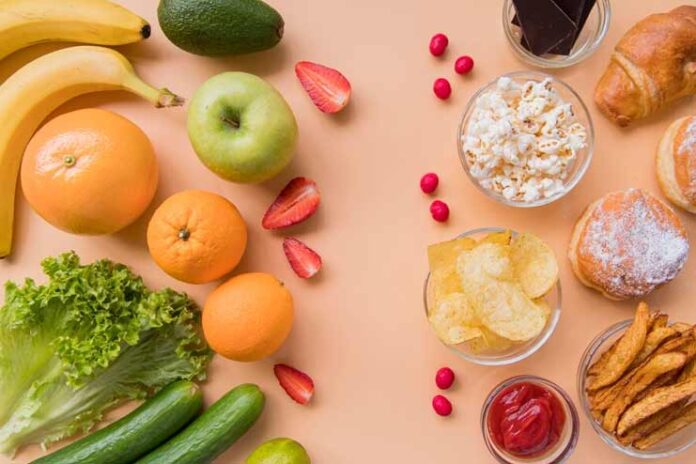Affiliate Disclaimer
Some links in this article are affiliate links. We may earn a small commission if you make a purchase through these links, at no extra cost to you. We only recommend products we find useful to our readersInsulin is a powerful hormone that plays a crucial role in our bodies. Imbalanced insulin levels can have negative effects, leading to insulin resistance, a serious concern for those who are prediabetic or diabetic.
Choosing foods that help maintain stable blood glucose levels is the safest approach. By the end of this article, you’ll have a clear understanding of foods that avoid triggering unexpected insulin spikes.
Why Are High Insulin Levels Bad For You?
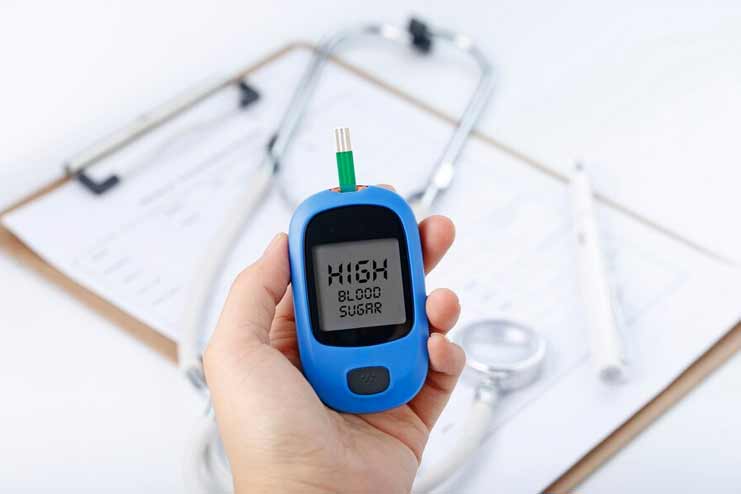
Insulin is a crucial hormone produced in our body and is key in managing blood glucose levels. You might not know its importance until those levels are severely disrupted.
When insulin levels remain persistently high, it can lead to insulin resistance, a condition particularly dangerous for pre-diabetics and diabetics. In this state, the body’s cells become resistant to insulin, which can be detrimental to your health. Even if the body produces enough insulin, it won’t be effectively utilized, resulting in elevated glucose levels that can worsen your health.
High insulin levels are also linked to other serious health issues such as obesity, heart disease (R) (R), and cancer.
17 Foods That Won’t Spike Insulin Levels
When it comes to foods that don’t raise blood glucose, the options are quite extensive. If you’re concerned about how to plan your diet to avoid random spikes in insulin and blood glucose levels, you’ve come to the right place.
Here are some foods that don’t spike insulin:
-
Raw or Cooked Vegetables
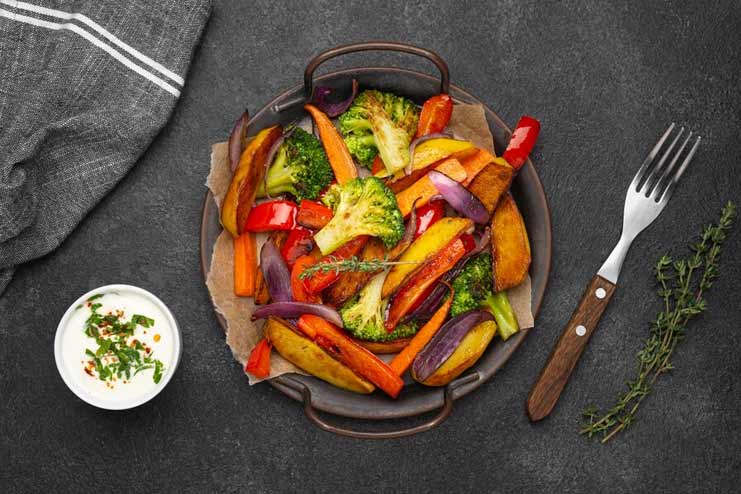
Vegetables are one of the best additions to your diet for foods that don’t cause a significant insulin spike.
Choosing low-carb, non-starchy vegetables is always wise, as they help stabilize your insulin levels. If you’re unsure which vegetables to pick, consider options like mushrooms, onions, tomatoes, eggplant, and zucchini.
These vegetables are low in carbs and packed with essential nutrients. Their combination of vitamins, minerals, and fiber makes them a nutritious and satisfying choice.
For flavor, pair them with low-carb, high-quality dips such as hummus, or spice up your roasted veggies to enhance their taste even more.
-
Avocados
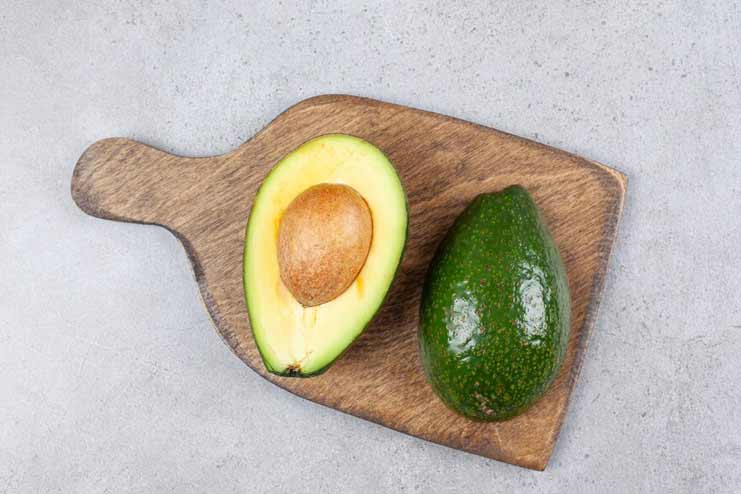
Avocados are rich in healthy fats and fiber, making them an excellent option for you to consider. Polyunsaturated and monounsaturated fatty acids have significant benefits for managing blood glucose levels. These fats have been shown to improve insulin sensitivity and help prevent overeating.
Furthermore, avocados have been found to reduce inflammation and lower blood pressure, both of which are crucial for long-term health. Studies suggest that consuming avocados can lower the risk of metabolic syndrome (R), a common concern. Their low glycemic index also helps manage blood glucose and insulin spikes effectively.
-
Fish
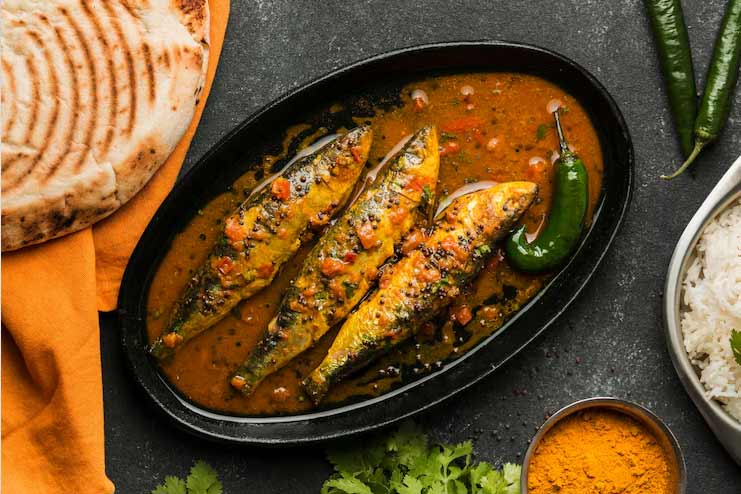
Fish and other low-carb protein sources like chicken or eggs have been found to positively impact the body, especially in managing blood insulin levels.
These foods don’t register on the glycemic index, which prevents spikes in blood glucose levels.
It’s important to limit your protein intake to lean options and avoid fatty or red meats, which carry the risk of heart disease and artery blockage, potentially leading to coronary artery disease.
-
Plant-Derived Oils
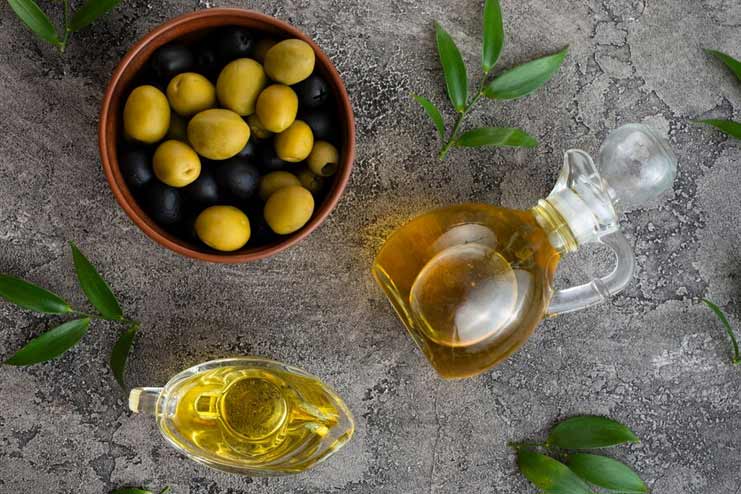
Plant-derived oils have been shown to help keep blood insulin levels in check. Whether these oils come from saturated or unsaturated fats, they have beneficial effects that might surprise you.
Good quality extra virgin olive oil is one of the best options, but be cautious about consuming fats (even healthy ones!) in moderate quantities.
-
Green Leafy Vegetables
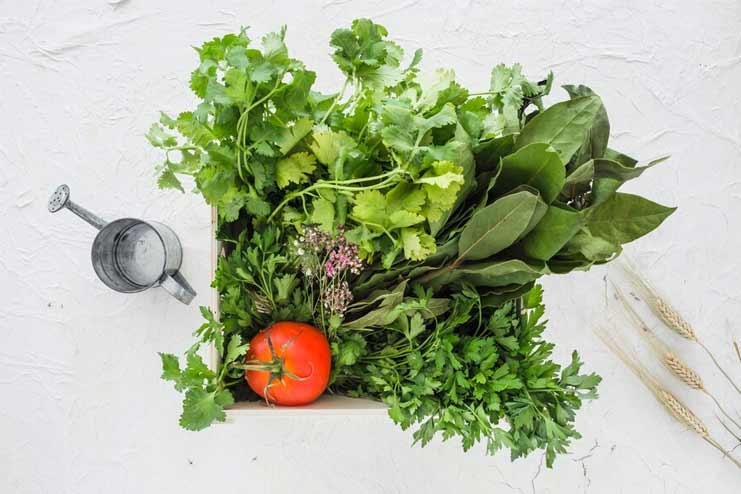
If you’re searching for foods that don’t raise blood glucose, green leafy vegetables like kale, spinach, and chard are excellent options to consider. They’re delicious and packed with essential nutrients, vitamins, and minerals – fantastic for diabetics due to their low-carb content.
Leafy greens might not be everyone’s favorite and are often an acquired taste, but their benefits for your body and overall health are too significant to ignore.
While salad is a great option for managing your health, be careful about the quality and quantity of dressings and toppings.
-
Garlic
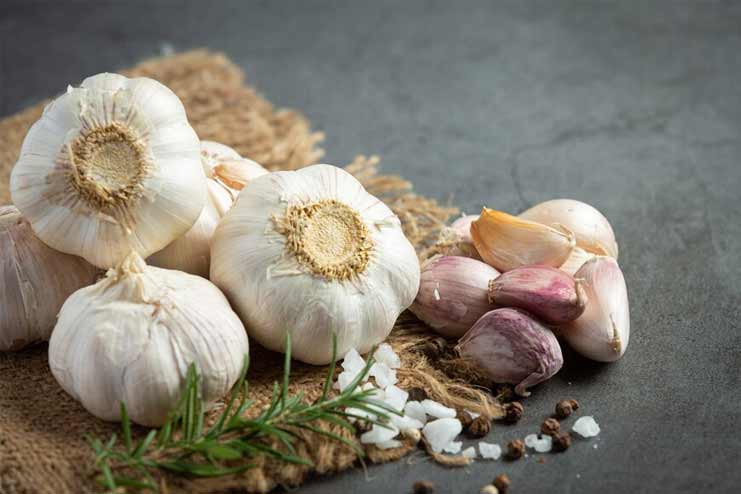
You might be surprised to learn that garlic is a fantastic option for managing insulin levels. Studies (R) have demonstrated the effectiveness of garlic in regulating blood sugar levels, and evidence suggests that consuming garlic can significantly lower fasting glucose levels.
You can enjoy garlic by eating a raw clove in the morning or simply incorporating it into your diet to benefit your overall health.
-
Nuts
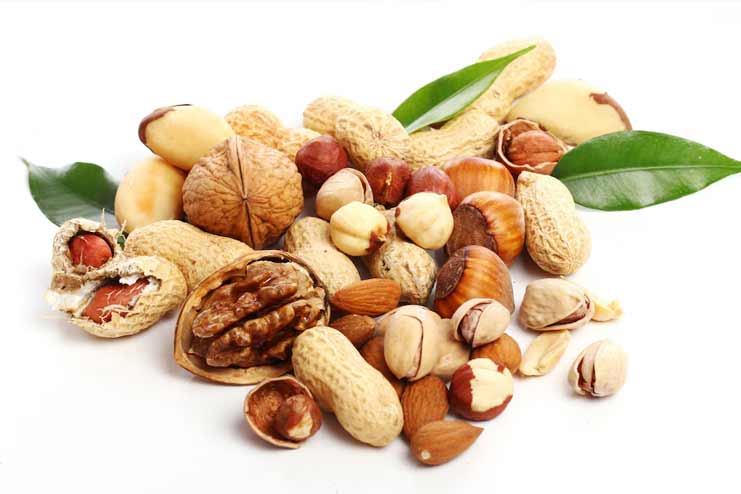
Another valuable addition to your diet for managing insulin levels is nuts. They help lower overall blood glucose levels and also aid in controlling satiety, which many people struggle with.
Snacking on nuts can positively impact glucose and insulin levels if you feel hungry at odd times during the day. Rich in protein, nuts are also beneficial for reducing cholesterol levels.
Studies (R) have shown that almonds can help regulate blood glucose levels while improving High-Density Lipoprotein (HDL) levels. Similarly, pistachios are beneficial for managing Low-Density Lipoprotein (LDL) levels.
Just be mindful not to overconsume nuts, as they are calorie-dense.
-
Infused Water

Plain water can become boring and monotonous. While soda and other high-sugar beverages are off-limits, it’s best to choose something that tastes good and is beneficial for your health, especially for managing insulin levels.
To add some variety, try exploring some delicious infused water recipes to find your favorite. These low-carb options won’t affect your insulin levels, which is a great bonus.
-
Sour Cherries
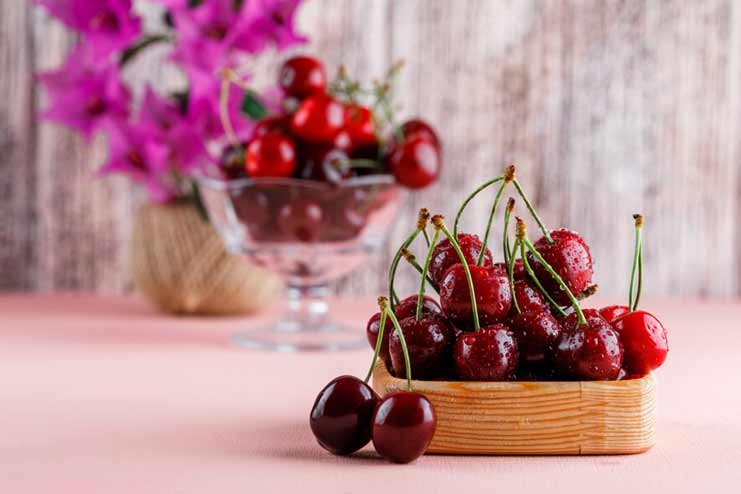
Many people believe that fruits are bad for your health, especially if you are prediabetic or diabetic. However, this isn’t always the case. While some fruits can cause insulin spikes, others are low on the glycemic index and can benefit your nutrition.
Sour cherries, for example, are an excellent choice for those looking to avoid insulin spikes. They have a very low glycemic index, and the high content of anthocyanins in sour cherries helps regulate insulin levels.
Studies (R) have shown that anthocyanins can positively impact diabetes management.
-
Grapefruit
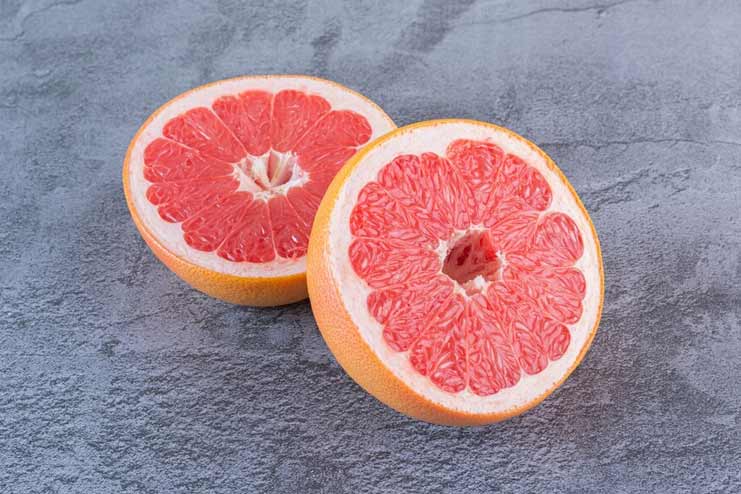
This tart and juicy fruit has been shown to have impressive effects on keeping insulin levels in check. This is because grapefruit has a glycemic load of just 3, which is much lower than you might expect.
However, if you’re on diabetic medications, it’s important not to start eating grapefruit suddenly. Consulting your doctor before incorporating it into your diet is always wise.
-
Cream Cheese
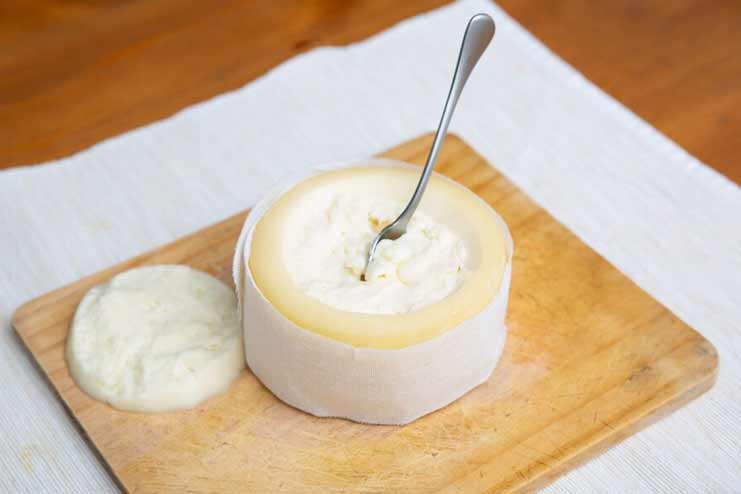
When it comes to foods that don’t spike blood glucose levels, cream cheese is an excellent choice. Most of the macronutrients in cream cheese come from fat, making it carb-free and ideal for managing blood glucose.
An ounce of cream cheese contains 9 grams of fat and just 1 gram of carbs, making it effective in keeping both blood glucose and insulin levels in check. The low carb content helps minimize insulin release in the body, but the high fat content is not always advisable. Stick to low-fat variations for optimal health benefits, and consume cream cheese in moderation.
-
Whole Grain Foods
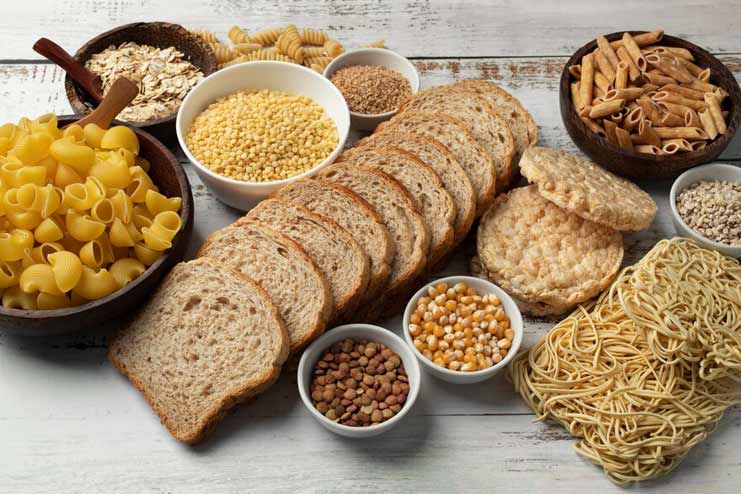
Another excellent choice is whole grains. These foods are free from refined carbs, which helps prevent insulin and glucose spikes in the bloodstream and alleviates digestive issues.
Whole grains are also rich in fiber, which further aids in managing insulin release and keeps it to a minimum.
While whole grains contain carbs, they are complex carbs that cause a sustained and stable glucose release and don’t cause a big spike in sugar levels when consumed in moderation.
-
Apple Cider Vinegar
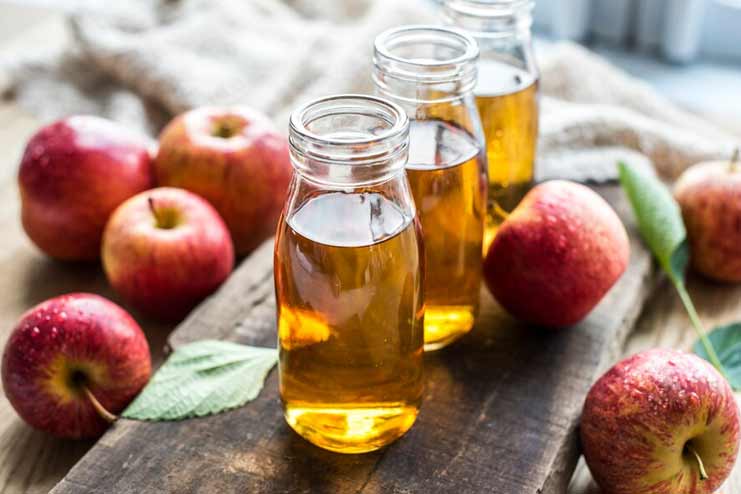
The acetic acid in apple cider vinegar is believed to have beneficial effects on managing insulin levels in the body. Experts suggest that consuming apple cider vinegar after a meal can help reduce the impact of the carbohydrates you’ve eaten. It is also believed that apple cider vinegar may improve insulin sensitivity.
For best results, mix one tablespoon of apple cider vinegar into a glass of water and drink it after a meal.
-
Hummus
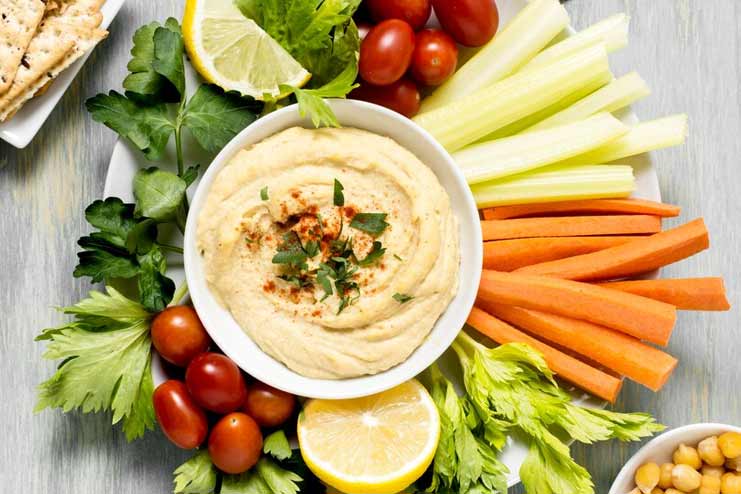
Hummus is another excellent food that won’t raise blood glucose or insulin levels. To get the best benefits, make sure to choose homemade or organic hummus without added ingredients.
For optimal health, pair hummus with fresh, low-GI vegetables to boost nutrition and enjoy a healthy snack. Avoid relying solely on store-bought versions, as they may be high in fat and do not always use the best quality ingredients.
-
Popcorn

Popcorn is one of the best options for non-insulin spiking foods. Having a glycemic index of 55, it falls into the category of moderate GI food, with its low glycemic load of 7. The glycemic load measures the actual effect of the food on blood glucose, considering both the quantity and quality of carbohydrates. This means that popcorn, in this case, has a low glycemic load (GL), hence having a minimal effect on the blood sugar level if consumed in moderation.
Moreover, popcorn is a whole grain and is a good source of fiber, which can contribute positively to digestion and overall health. However, this will not work if too much butter or sugar is added. Plain or just lightly seasoned popcorn is the healthiest option.
-
Chia Seeds
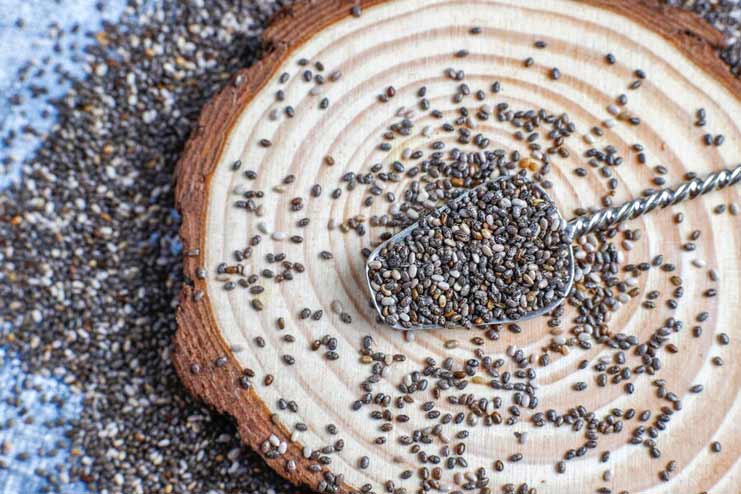
Chia seeds are a versatile ingredient that fits perfectly into a diet that avoids insulin spikes. These tiny seeds are rich in antioxidants and packed with healthy fiber, calcium, and beneficial fats, including omega-3 fatty acids.
Numerous studies have highlighted the impressive benefits of chia seeds for lowering LDL cholesterol and overall cholesterol levels. Regulating these levels is also advantageous for managing blood glucose levels, which helps control insulin levels.
With a glycemic index of just 1, chia seeds are an excellent choice for maintaining stable insulin levels. Incorporate them into your diet to effectively manage insulin levels and enhance overall health.
-
Cacao
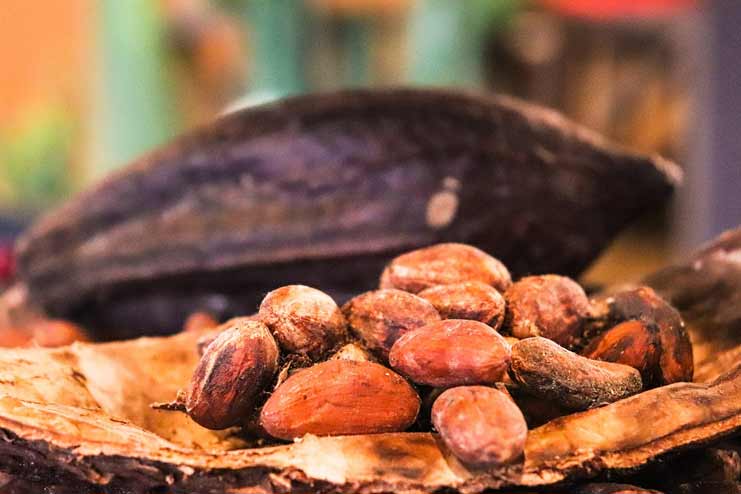
Cacao is another fantastic food to include in your diet for better insulin management. It is rich in antioxidants and contains epicatechin, which has been shown to effectively regulate glucose production without causing insulin spikes.
Cacao aids in the secretion of key regulatory proteins that help manage and stabilize blood sugar levels, making it particularly beneficial for individuals with diabetes.
Conclusion
Maintaining a stable insulin level is important for diabetes management and overall health. We reviewed 18 foods that keep insulin levels stable without any unnecessary spikes. These foods range from low-carb veggies and healthy fats to high-fiber options and natural sweeteners, which support a diabetic-friendly diet and contribute to better blood glucose management.
With these added to your diet, you can regulate your body’s insulin levels and maximize your health and well-being. Always keep a balance and eat various nutrient-rich foods; yet again, consider going to a doctor and/or a nutritionist for professional advice. Such a diet will help you achieve and sustain stable insulin levels and an improved quality of life.
-
Mar 2019Written by Somapika D
-
Oct 2024Edited by Lakshmi Gayatri
References
- https://www.ncbi.nlm.nih.gov/pubmed/26678809
- https://www.ncbi.nlm.nih.gov/pubmed/27368923
- https://www.ncbi.nlm.nih.gov/pmc/articles/PMC3664913/
- http://www.eurekaselect.com/110866/article
- https://www.ncbi.nlm.nih.gov/pmc/articles/PMC5333560
- https://link.springer.com/article/10.1007%2Fs11154-014-9302-z
- https://academic.oup.com/ajcn/article/75/5/848/4689398
In this Article













